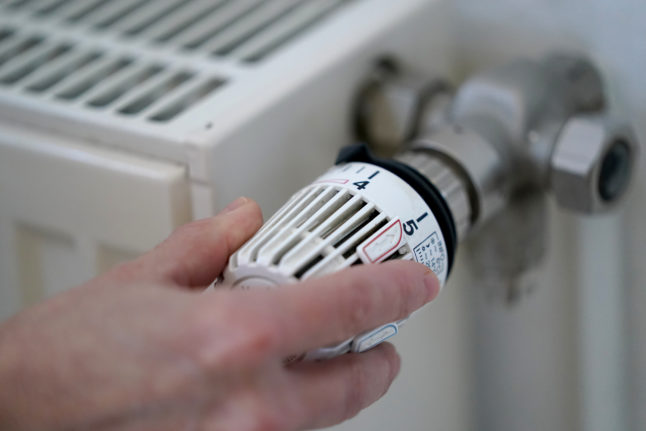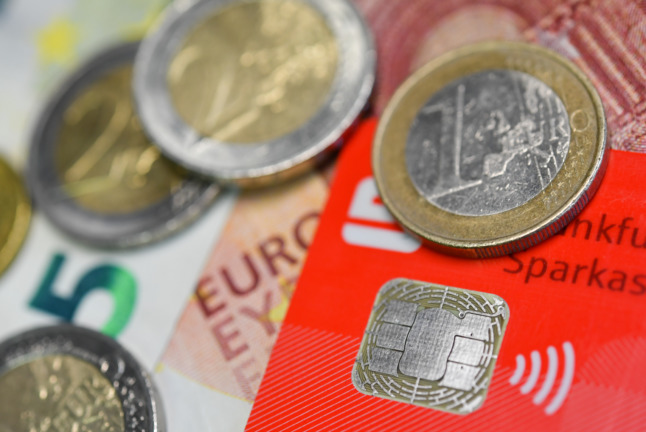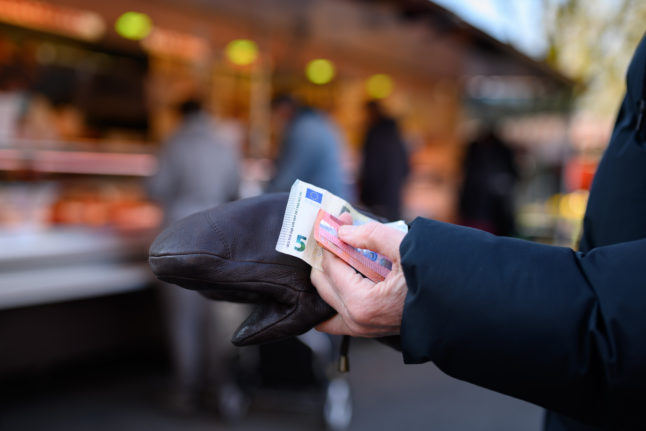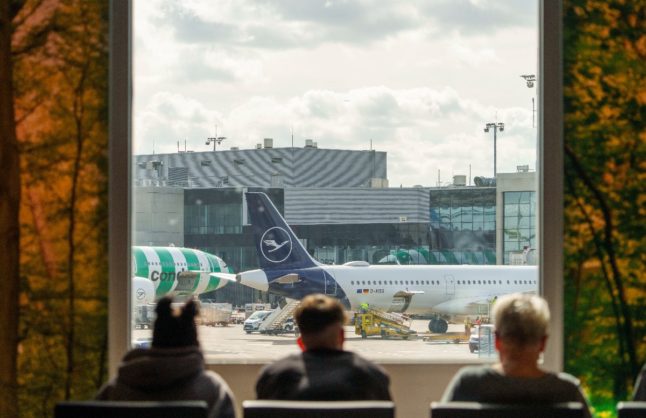Germany has approved a special package to provide financial relief to people during the cost of living crisis.
Among the measures in the Tax Relief Act is a €300 allowance known as the Energiepreispauschale or EEP in Germany, which employers will have to pay out to their staff later this year. Self-employed people will also receive it. However, the payment is taxed for everyone who receives it.
It is aimed at providing financial relief to workers in Germany dealing with soaring energy bills.
READ ALSO: KEY POINTS- What Germany’s budget means for you
Which employees receive the payout?
All employees in tax brackets one to five who are in employment in 2022, as well as people in marginal and short-term employment (i.e. people with mini jobs and temp work) who pay flat-rate tax on their wages, will get the cash boost.
“Marginal or short-term employees must confirm in writing to the employer that the marginal employment is their first employment relationship,” Ecovis tax consultant Magdalena Glück, who’s based in Dingolfing, told trade site Handwerksblatt.
This prevents the energy price lump sum from being paid out twice. All those who were employed as workers at some point in 2022 will receive the €300, whether it’s through their employers or an income tax assessment.
The SPD (Social Democrats) parliamentary group in the Bundestag said “44 million working people will be relieved quickly and unbureaucratically” through the payment.
When and how do employers pay out the lump sum?
Employees should receive the cash boost with their September wages. For this purpose, the employer will add an “E” on the pay slip certificate detailing the amount.
“If employers do not pay the wage tax monthly – but quarterly instead – the energy price lump sum can also be paid out in October,” said Glück.
The lump sum is free of social security contributions – but it will be subject to tax for most people. “For mini-jobs taxed at a flat rate, the €300 is tax-free,” said Glück.

Glück added that it was extra bureaucracy for employers.
“Many citizens will be happy about the money. But for employers, the energy price lump sum is additional work,” she said.
Do self-employed people also get the lump sum and if so, how?
As well as employees, freelancers tradespeople and other self-employed workers also receive the lump sum. For them, the payout is considered other income – but the exemption limit of €256 is not applied.
They receive the lump sum by reducing their advanced income tax payment in September, provided the advance payment reaches the amount of the lump sum.
Employees who are not in employment on September 1st and self-employed people with low advance payments are granted the flat-rate energy allowance via their income tax return without submitting a separate application.
“If no advance payment is made, the amount can only be taken into account in the income tax assessment,” said Glück. “This happens automatically,” she added.
READ ALSO: Will freelancers benefit from Germany’s €300 energy allowance?
What about people who’ve retired?
Pensioners who are not in employment in 2022 are not entitled to the payout. However, according to reports in German media, if they work for a short time in 2022 – even if that’s a one-day mini-job – they are entitled to the payment.
CDU financial expert Antje Tillmann even recommended a special trick to try,
“It is sufficient, for example, for a pensioner to look after his grandchild for one hour in 2022 and receive €12 minimum wage from his children in return as part of a mini-job or from self-employment,” said Tillmann told German daily Bild. “Subsequently, he declares this income in his tax return, gets the energy price lump sum paid out in May 2023.”
Tillmann recommended that the “salary” be paid out via a bank transfer so that it can be presented as a mini-job.
We’d recommend you chat to an expert such as a tax consultant to see your options.
How much of the €300 will people actually receive?
“That varies from person to person, because the EEP is subject to the personal income tax rate,” said Glück.
It means that people with a low income will have to pay little or no tax at all, while those with a high income will receive less of the payment.
The payout has been designed that way on purpose. “Since taxation increases with income, a social design for the flat rate is achieved,” said the SPD in a press release.

picture alliance/dpa | Arne Dedert
The German government expects additional tax revenue from the energy price flat rate of €3.4 billion. On average, people who get it will be left with around €226.
As well as income tax, surcharge taxes such as church tax and the solidarity surcharge may further reduce the lump sum in some cases.
As we mentioned above, people who have mini-jobs who are taxed at a flat rate should be happy: for reasons of simplification, lawmakers have decided to waive taxation here.
How do employers get their money back from the government?
The energy price flat rate is offset against tax.
“The employer therefore simply pays less wage tax to the tax office,” said Glück. “If employers have to pay out more EEP to employees than they pay in wage tax, they get the difference from the tax office.”
What other payouts are people receiving?
As well as the €300 payout, families will receive a one-off Kinderbonus of €100 per child this year. The bonus will be paid out with the child benefit payment in July.
There will also be a €200 payout for people on social welfare, and €100 for people on the unemployment benefit Arbeitslosengeld I.
Meanwhile, a €270 heating cost allowance for people on housing benefit, and €230 for students receiving state support (BAfög) is also planned.
In total, the law provides around €4.46 billion of financial relief for people in Germany this year.
READ ALSO: Why people in Germany have longer for their tax return this year
As with all of our tax and financial summaries, this is a guide only and should not be taken to constitute specific and tailored financial advice. For tax advice which is personalised to your situation, please contact an accountant or tax specialist.



 Please whitelist us to continue reading.
Please whitelist us to continue reading.
Member comments